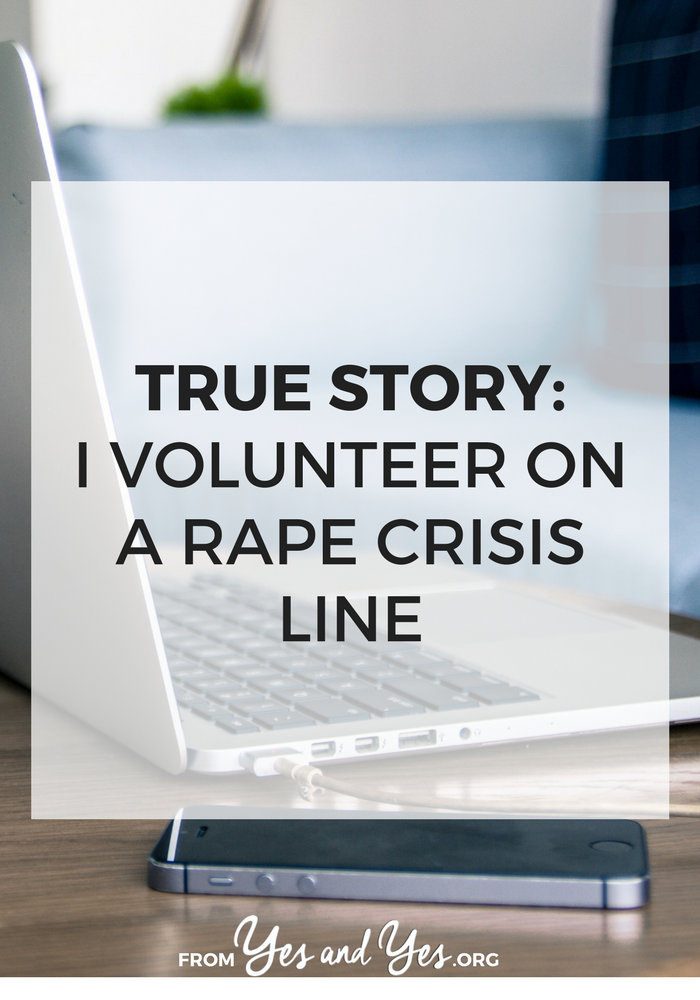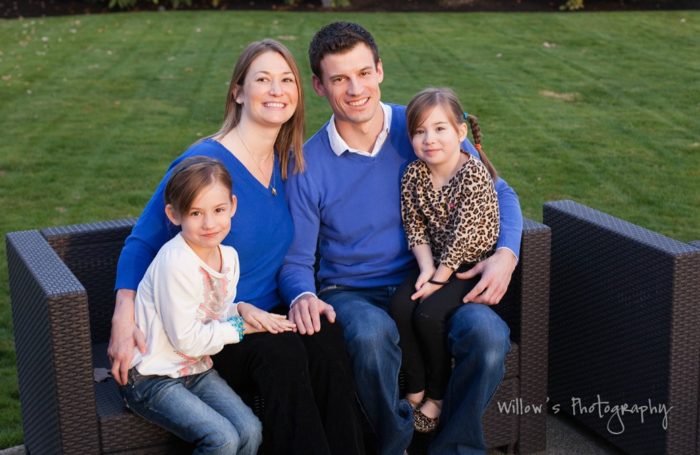
My name is Rebecca, I’m a 26-year-old Iowan who works as a corporate communications writer (that’s a fancy way of saying I write brochure, publication and web copy). I am a crazy bibliophile who also happens to love trashy reality TV and writing fiction.
When I was in college I wrote for my campus paper, and I did an interview with a student who volunteered with RVAP, and it always stuck in my mind. After graduating, I became more interested in feminism and volunteerism. And a little over a year ago, I challenged myself to do something that intimidated me, so I emailed RVAP about becoming an advocate.
What sort of training did you go through in order to volunteer there?
RVAP’s training program is a little over 30 hours long, spaced over eight meetings. Part of the training was lectures and discussions covering topics such as victim-blaming, post-traumatic stress, suicidal thoughts, talking with significant others and loved ones of the survivors.
I usually take calls on the weekends, because that works better with my schedule. Most shifts are about 8 hours long, and I’m given a cell phone to use. I have to stay at home during my shifts, so I can have privacy to talk to callers, but other than that I go about my regular life. I clean, read, sleep (with the cell phone next to me), watch horrible reality television and surf the Internet.
We take confidentiality seriously, so I can’t talk about specific calls. But in general, calls can run the gamut from sexual harassment to sexual assault. Many of our calls are from survivors – whether it’s from someone who recently dealt with an incident or wants to process something from many years ago. We also have calls from friends and family members of survivors who want to process their own feelings or figure out how to be the most supportive they can be.
I was trained with the philosophy that the survivor knows how to help himself or herself heal. As an advocate, I’m just there to help facilitate that. So my role is to listen actively. I identify the feelings I hear the caller describing, and I ask questions that might help uncover ways to cope with those feelings. Each call is different, and I really take the lead from the caller.
I was really ignorant about what a victim-blaming society we live in. I think this post really puts into perspective how we treat sexual assault survivors versus the survivors of other crimes. We like to tell ourselves that the person was drunk or wearing the wrong clothes and that’s why he or she was raped, because it makes us feel safe. It makes us believe that it couldn’t happen to us. That it only happens to people who make bad choices. And that’s just not true.
Anyone who holds sexist beliefs or is not culturally sensitive or unwilling to be nonjudgmental. It’s important not to press your own beliefs on a caller, because their life circumstances might not be the same as yours and the most important thing is for them is to do what’s the right choice for them.
This website is a good starting place to find volunteer opportunities in your area. Don’t be intimidated. These organizations need compassionate volunteers and if you’re even considering doing it, that means you’re probably a good fit.












What a wonderful person. Emotionally I wouldnt cope with that!!I wish you the very best in your life and the people you help
I've been considering doing this for so long, thank you for posting this interview, I'm going to have another look into volunteering now!
I would never have the courage to do this.
Good on you, Rebecca, good on you. I hope others are inspired to volunteer in any way t hey can (even donating items to shelters for victims of abuse) – or just educate themselves on victim blaming society to make themselves more aware.
Wow, you are an inspiration. I don't know if I could handle those calls, my emotions would probably boil over. Thank you for sharing – I'm checking all your links!
Thanks for your service! It's also really reassuring to hear from a volunteer how seriously they take confidentiality. I've considered doing this myself but have always hesitated – this post is inspiring me to at least give it a shot!
As someone who's called a crisis prevention line before, I'm very grateful for people like Rebecca, who's made me reconsider volunteering at a crisis line myself.
Thanks for featuring me, Sarah! And thanks for all the sweet comments, guys.
For those of you considering volunteering, do it! For those of you who think you couldn't handle it, I think you might surprise yourselves!
If anyone has any questions they'd prefer to ask me privately, feel free to email me at rebecca (at) gmail (dot) com.
Whoops – that's rebecca.mckanna (at) gmail (dot) com.
Thank you for sharing! Your comments perfectly sum up our victim-blaming culture, which is great, because so many people don't see the problem and need to have it explained to them. I'll be including this in my links roundup on Monday!
This post has made my morning. I volunteered at a school for girls saved from early marriage and loved it but had to take a break because of my new job. I thought it drained me at the time and had been certain that I would give up in a few weeks, but now all I can think of is going back and doing what I love. In Rebecca’s own words: There is never a moment I’m volunteering where I doubt the importance of what I’m doing. And that’s a rare thing in life.
Thanks for sharing this with us, Rebecca! Bless you!